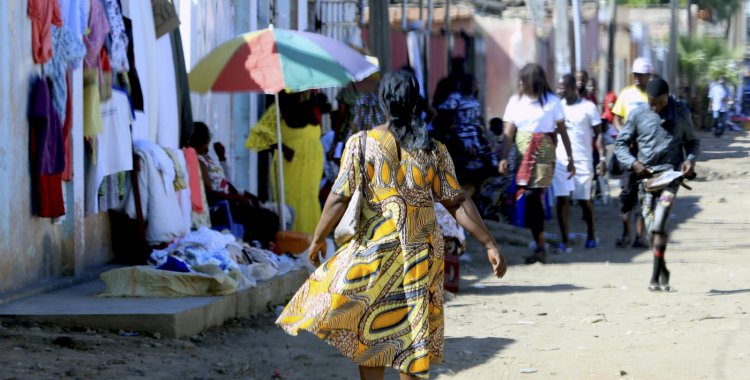Rémy Lumbu, also Special Rapporteur for the Defense of Human Rights, asked, this Thursday, civil society organizations to work with parliamentarians in order to find a balance in changing the law that regulates their activities.
Asked about the government's proposal to change the law that governs the functioning of Non-Governmental Organizations (NGOs), under the allegation that it could promote the crime of money laundering, Lumbu commented that this type of crime is a form of corruption against which the African Commission also fights, calling again for a balance to be found.
"Fighting against illicit financial flow, money laundering, is a legitimate concern, but this fight cannot negatively impact civil society organizations, vetoing funding, States need control over all finances, but without limiting the work of NGOs", he said.
Lumbu is on a four-day visit to Luanda, until Sunday, accompanied by the United Nations Special Rapporteur on Freedom of Association and Peaceful Assembly, Gina Rodriguez, and Anselm Ondinkalu, professor of Practice in International Human Rights Law, at the Fletcher School of Tufts University, United States.
Speaking to the Lusa agency, the president of the African Commission on Rights and Peoples explained that the visit, at the invitation of Kutakesa, a movement of human rights defenders in Angola, Mosaiko - Institute for Citizenship and the Union of Angolan Journalists, aims to exchange of information with civil society on issues related to human rights and civic space.
The expert encouraged Portuguese-speaking human rights organizations, which due to language barriers participate little in the activities of both the African Union and the African Commission, to request observer status at the institution, for greater interaction.
The official stressed that Angola is a post-conflict country, which has advanced in the democratization process, but with much still to improve.
Rémy Lumbu highlighted that the government is committed to "making transparent" human rights issues, noting that they have submitted a report to the African Commission on the situation in the country.
Asked to comment on the authorities' restrictions on the right to demonstrate in Angola, the person in charge argued that it is always necessary to find a balance, for the Government to ensure order and tranquility, without contradicting the realization of this right.
"We will address these issues with the authorities, they will present their reasons and we will make our recommendations, with a view to finding a balance between the parties", stressed the rapporteur, adding that in September they will return to Angola for an official visit.
In interaction with participants, faced with concerns about the arrest, almost a year ago, of four Angolan activists, the rapporteur recommended sending a report with the names and reasons for the arrests, to be submitted to the commission.
The activist from the south of the country, Cecília Cassapi, highlighted the importance of the visit, considering that it is an incentive for the work of Angolan civil society. To Lusa, Cecília Cassapi said that the drought in the south of the country, which has created the new phenomenon of "climate refugees", continues to be a concern, without there being "a public position" from the Government.
In turn, the lawyer and human rights defender in the province of Huambo, Félix Bom Ano, highlighted that Angola has made several international commitments, but that it does not fulfill them, hoping, with international experts, to find ways to ask for State accountability when they are rights violated.







